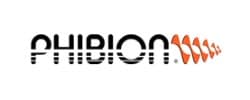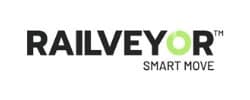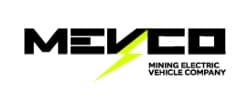ESG and RCF Innovation II
RCF Innovation Fund II invests in high-growth companies that seek to make mining safer, cleaner, and more productive
RCF Jolimont Mining Innovation Fund II and II-A L.P. (RCF Innovation II or the Fund) invests in high-growth companies that seek to make mining safer, cleaner and more productive. By enabling these companies to apply innovation and technology to tackle some of the mining industry’s biggest ESG challenges, the Fund aims to improve mining sustainability while delivering returns to investors.
Addressing ESG Challenges
ESG challenges being tackled include emissions reduction, electrifying mining fleets and haulage, addressing inefficient water consumption, improved process control to enhance efficiency and recovery, and improving the management of tailings storage facilities.
Australia’s CEFC
Australia’s “green bank”, the Clean Energy Finance Corporation (CEFC) invests in the clean energy transition to reduce emissions across the economy. The CEFC has committed up to USD $13,950,000 to RCF Innovation II and the Fund is proud of it’s involvement with the CEFC.
A Focus on Decarbonisation
The Fund considers the decarbonisation potential of technologies prior to investment. It also collaborates with in-scope Portfolio Companies to baseline current emissions, implement strategies to reduce emissions and assist the progress of mining customers progress towards net zero emissions through the application of advanced technology.
Relied on globally for mine finance
Energy and Emissions Reduction
The approach to decarbonisation for the technologies in which RCF Innovation II invests includes the following:
- Calculation of Scope 1, 2, and 3 greenhouse gas emissions using the Greenhouse Gas Protocol;
- Identification of the most material sources of emissions for each Company;
- Identification and evaluation of emissions reduction opportunities and their quantification (emissions, capital cost, and value);
- Implementation of emissions reduction plans and inclusion of emissions reduction in strategic plans;
- Measurement of success in reducing emissions including in management performance assessments.
This approach will be applied progressively for each in-scope Portfolio Company, with baseline reporting within one year and emission reduction plans in place within two years of the initial investment.
RCF’s broader position and approach to climate change can be reviewed in its 2021 ESG Report.

Emissions Baselines
RCF have been collaborating with in-scope Portfolio Companies to calculate Scope 1 and 2 Greenhouse Gas Emission baseline data, for financial year 2023. The Phibion, Real Time Instruments, and Railveyor baseline data is summarised in Table 1 below.
Table 1: Baseline Scope 1 and 2 Greenhouse Gas Emissions for financial year 2023 (all values in metric tonnes CO2 Equivalent)
Sources of Data
1. VRIFY Technology is a portfolio company within RCF Innovation II. However, VRIFY is out of scope for emissions reporting as it is a software business without direct mining operations and is a minority investment.
2. RCF is currently working with Mevco Mining Electric Vehicle Company to calculate baseline emissions.
This is not an offer or solicitation with respect to the purchase or sale of any security.



